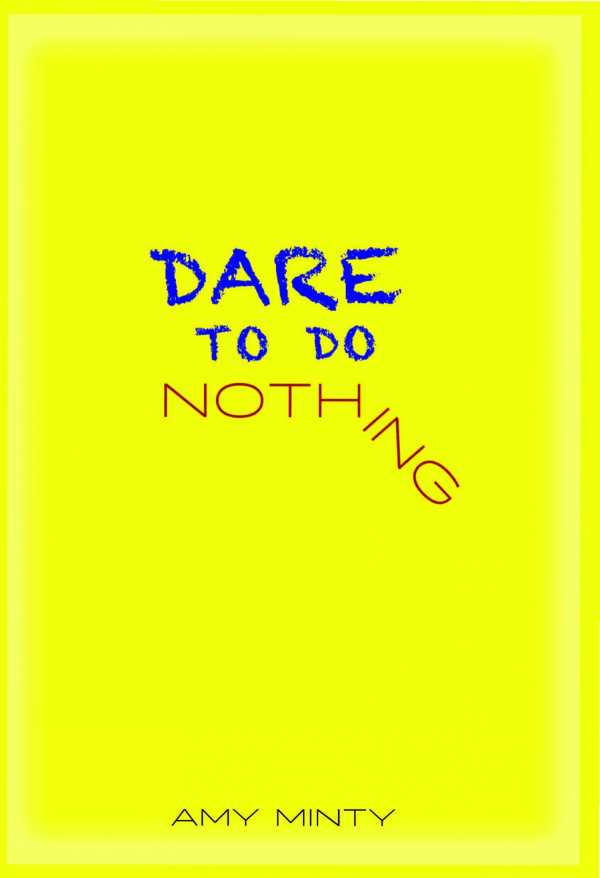Dare to Do Nothing
This tongue-in-cheek self-help text takes nonattachment to new heights.
Humorous and edgy, Amy Minty’s self-help book Dare to Do Nothing is a call to toss out work, stress, and obligations of all types and begin to enjoy a life that feels like a permanent vacation.
Minty declares that achievement is overrated, and states that she has focused on doing nothing for the past twenty-five years. Recognizing that doing nothing can get boring, she suggests some pleasurable activities that are exceptions to the “do nothing” rule: eating, drinking, smoking, sleeping, and having sex. Her book shows how, with a change in one’s mindset and a little practice, everyone can develop the ability to focus on pleasure and avoid anything that looks like work. Real-life examples show Minty’s proven techniques in action and demonstrate the value of adopting at least some of them.
The tongue-in-cheek text takes nonattachment to new heights as it explains how detachment from desires and outcomes makes the freedom to do nothing possible. It does, however, suggest that it’s fine to have preferences, as long as no work is required to arrive at them. The book makes a clear distinction between work and pleasure: having sex, for example, falls into the category of pleasure, but in the case of a prostitute earning her living, it becomes work; ditto for having sex with a less than delightful partner. It also takes the angst out of decision making with the suggestion to simplify it by evaluating how much work a choice will entail, to get as close to doing nothing as possible.
Amusing vignettes show how Minty, in total revolt against her hard work and achievement-centered upbringing, employed creative, effective strategies to get away with doing nothing while appearing to be busy and engaged, as “being fired is a pain in the ass.” Her strategies, while amusing, even slapstick ridiculous, demonstrate both knowledge of human psychology and how a variety of work situations really function (or don’t). They include giving ambiguous answers to work-related questions; sly methods of getting others to do the work; always looking overworked and in a hurry; and getting a higher education, which opens access to jobs that pay well for very little actual work. The book provides a list of such professions, including that of psychologist, a job that it says entails appearing to listen while holding an “inquisitive, yet pensive stare”; making sure that clients understand that their problems require return visits; and deciding where to dine that evening with a client’s money.
Although its basic approach is comedic, the book makes a convincing case that, in the drive for material success, many people don’t even know what it is that would make their hearts sing and their spirits soar, and give little attention to personal joy and satisfaction on a day-to-day basis. Countering the ubiquitous advice to take a loved activity and make a career of it, the book argues that doing so would turn a passion into work, negating its benefits.
A hilarious antidote to labor-intensive work ethics, Dare to Do Nothing highlights the many benefits of enjoying life while exerting minimal effort—or better yet, doing nothing at all.
Reviewed by
Kristine Morris
Disclosure: This article is not an endorsement, but a review. The publisher of this book provided free copies of the book and paid a small fee to have their book reviewed by a professional reviewer. Foreword Reviews and Clarion Reviews make no guarantee that the publisher will receive a positive review. Foreword Magazine, Inc. is disclosing this in accordance with the Federal Trade Commission’s 16 CFR, Part 255.

